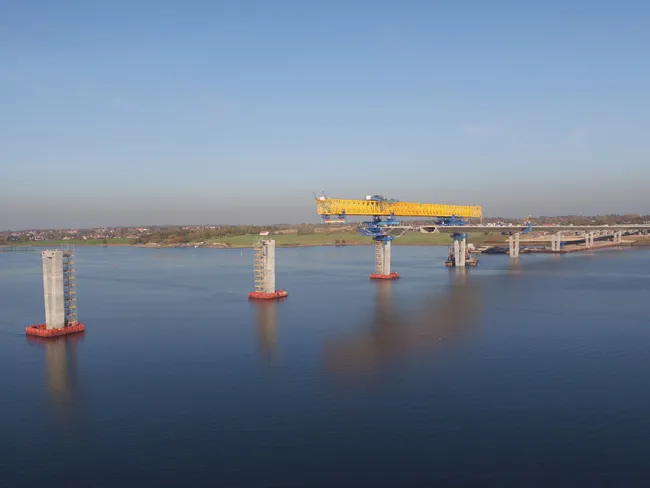Tenders have now been received for the Mersey Gateway Project from all three shortlisted bidders competing to deliver the project on behalf of Halton Borough Council. The full and final tenders were delivered to the project’s offices overlooking the River Mersey ahead of the deadline. The project team and its expert advisors will now spend the next few weeks assessing the three bids. The bidding teams have spent the last 18 months working on their plans to become Halton Borough Council’s private sector par
April 10, 2013
Read time: 2 mins
Tenders have now been received for the 6126 Mersey Gateway Project from all three shortlisted bidders competing to deliver the project on behalf of Halton Borough Council. The full and final tenders were delivered to the project’s offices overlooking the River Mersey ahead of the deadline. The project team and its expert advisors will now spend the next few weeks assessing the three bids. The bidding teams have spent the last 18 months working on their plans to become Halton Borough Council’s private sector partner that will act as the ‘project company’ by winning a 30-year contract to design, build, finance and operate a new toll bridge over the River Mersey between Runcorn and Widnes, together with associated work in the towns. An announcement about the identity of the preferred bidder is due in June. The project team remains on track to sign a contract and begin construction work by late 2013/early 2014. The project will be one of the largest infrastructure initiatives in the UK over the coming years. Earlier this year Mersey Gateway was identified as one of the UK government’s Top 40 priority projects in the National Infrastructure Plan. Its centrepiece will be a new six-lane toll bridge over the River Mersey. The existing Silver Jubilee Bridge will also be tolled as part of the project, which is expected to help create thousands of new jobs, secure inward investment to the area and deliver important regeneration benefits. The value of the construction phase of the project, including land, is estimated at £600 million. The total project costs/revenues over the next 30 years will be around £2 billion. Further detail about the detailed schedule of works will be published after the appointment of the preferred bidder.









